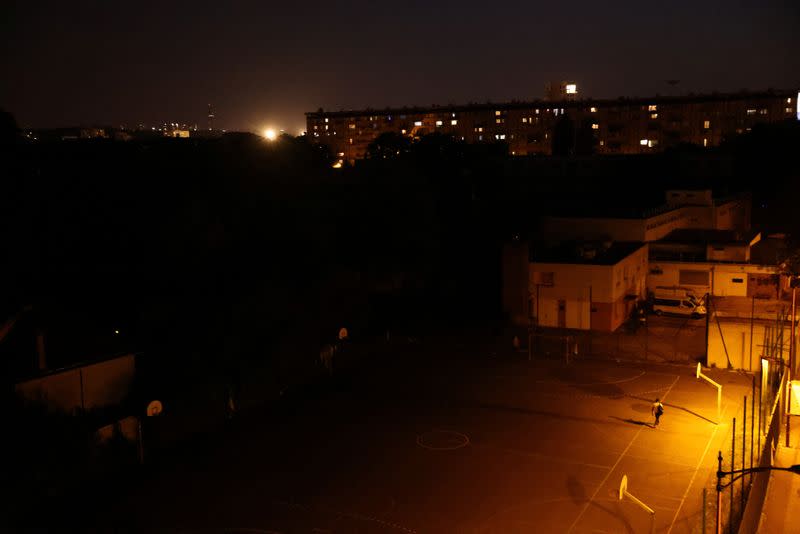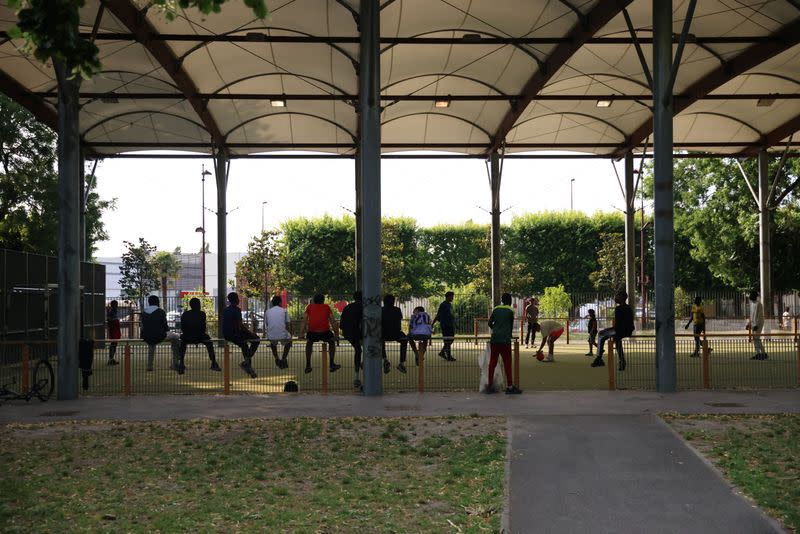As turmoil hits poor French suburbs, some look to soccer hero Mbappe
BONDY, France (Reuters) - In the down-at-heel Paris suburb of Bondy, where Kylian Mbappe grew up, some residents have looked to the 24-year-old France soccer star for guidance on how to react to a wave of rioting in their community and many others like it.
The violence was triggered by the fatal police shooting on June 27 of Nahel M., a teenager of North African descent, which caused fury among many youths in France's low-income, ethnically mixed and perennially marginalised suburbs.
While appeals for calm from politicians and law enforcement figures fell on deaf ears for night after night of rioting, some people felt that Mbappe's expressions of dismay over Nahel's shooting as well as his calls for calm had hit home.
"There is no doubt that it (Mbappe tweeting) has been a factor which played an important role. He both paid tribute to Nahel, and expressed his desire for the situation to cool down," said Rohat Sari, a soccer coach at a Bondy sports club.
"If Mbappe's words weigh more than those of a minister, it's because he did something, he did something that we saw, that we liked and which made us feel something," he said.
Bondy children on their way to the sports club passed both a huge mural celebrating Paris St Germain striker Mbappe and his success as well as torched cars, evidence of the recent turmoil.
Eric Ousmane Ngam Atah, whose 12-year-old son Yacine plays soccer at the club, said he was grateful to Mbappe for speaking out in the way that he did. This had reinforced his status as a role model for youth in places like Bondy, he said.
"It gives them hope to see that someone who grew up here in the same conditions is as successful as they can be. It's a very important message that he had. It can appease them, because for them he is an example," said Atah.
In his first public comment on the dramatic chain of events, Mbappe tweeted on June 28 that he was aching for France, that the situation was unacceptable and that his thoughts were with the family of Nahel, who he described as an angel.
Two days later, Mbappe posted a much longer statement in which he said that while he understood people's anger, he couldn't condone the way it was being expressed.
He described the torching of cars and buildings in the suburbs as acts of self-destruction that saddened him.
(Reporting by Horaci Garcia; Writing by Estelle Shirbon)



